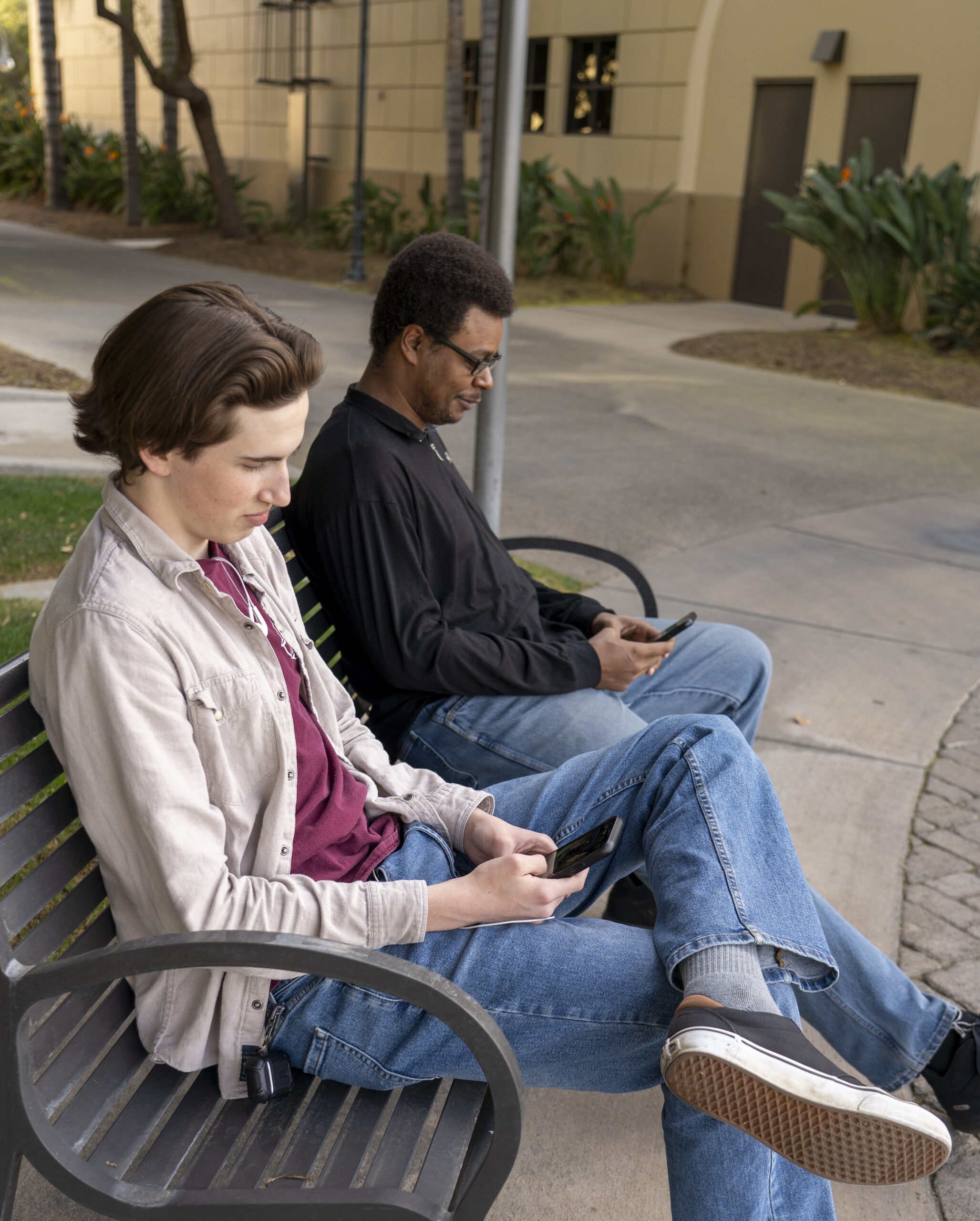
The invisible presence of social media hovered over college students’ lives, regardless of how much time they spent on it. Concerns about the potential harms of social media had risen, particularly for young adults.
Professor Brian Bovee, associate professor of computer information technology, believed that social media could be a powerful tool for good when used intentionally.
“It can foster community, share meaningful ideas and provide encouragement. Social media provides opportunities to network, share ideas and build meaningful connections with others who share your values or goals,” Bovee said.
Bovee suggested what he believed were good habits for navigating intentional social media use.
“The tip I would offer is to use social media as a tool, not a habit. Before logging in, ask yourself: What is my purpose in using this platform right now?” Bovee said. “Whether it’s to connect with a specific person, share a message or even learn something new, having a purpose ensures that you control your social media use rather than letting it control you.”
Bovee shared that he used social media to get updates from his grandkids and stay connected with those he would otherwise lose contact with. He also used social media to share insights from his book, “The Focused Faith,” to inspire others to reflect on their spiritual lives and create boundaries that protected what mattered most.
Eleonora Visnevskyte, sophomore computer science major, established boundaries for social media use.
“In the new year, I set time limits on some social media,” she said. “It has a fast information effect, which began impacting my ability to concentrate for a longer period of time on specific tasks.”
Bovee advised students to be aware of social media’s effects on them.
“Social media thrives on the attention economy, meaning millions of dollars and the brightest minds on the planet are deliberately designing it to keep you scrolling, often at the expense of your mental health. Be careful of falling into the comparison trap, where curated content makes others’ lives look more perfect than they are, which can lead to dissatisfaction and anxiety,” Bovee said.
When it came to time management, Bovee encouraged students to be cautious.
“Reflect on how much time you’re spending on social media versus pursuing meaningful relationships or personal growth,” Bovee said.
ShaRena Steeple, senior architecture major, took time away from social media and noticed a change in her personal growth.
“I detoxed from social media for six months, and during that time, I found myself more ‘me’ in my days, being there for myself and the people around me,” Steeple said.
Steeple shared that it felt freeing not to feel obligated to post or engage with others’ posts.
“I felt that it contributed greatly to the improvement of my mental health because it gave me a chance to detach myself from parasocial relationships that were not benefiting or enriching my social life and allowed me to get clear on who I am in real life with real people, building tangible relationships,” Steeple said.
Steeple took time to reflect on what was meaningful and what was unnecessary.
“Due to not having the constant consumption [scrolling], I had more space in my mind to be creative,” she said. This time brought her new ideas and hobbies that she quickly integrated into her life.
“I have a chance to decide what my ‘why’ would be for returning to social media and using it, and I’m still taking my time with that. But I know it will have a deeper purpose in contrast to superficiality,” Steeple said.
Bovee cautioned students to be mindful of how social media impacted their spiritual lives. He pointed to a quote from John Ortberg:
“For many of us, the great danger is not that we will renounce our faith; it is that we will become so distracted and rushed and preoccupied that we will settle for a mediocre version of it.”
“In addition to the well-established research on social media’s effects on psychological health, social media can significantly degrade our focus, which has a major impact on our spiritual health as well,” Bovee said. “An inability to focus in prayer, solitude deprivation and a lack of focus while reading Scripture are examples of how a loss of focus can also diminish our relationship with God.”
Social media had the power to influence consumers in different areas of life. Bovee emphasized the importance of setting boundaries for social media use in students’ lives.
“At the end of the day, make sure that social media serves you, not the other way around,” Bovee said.
Ultimately, whether social media benefited college students depended on how they chose to use it. With the new year, individuals had the opportunity to establish better habits and be more intentional about their online presence and data usage.


